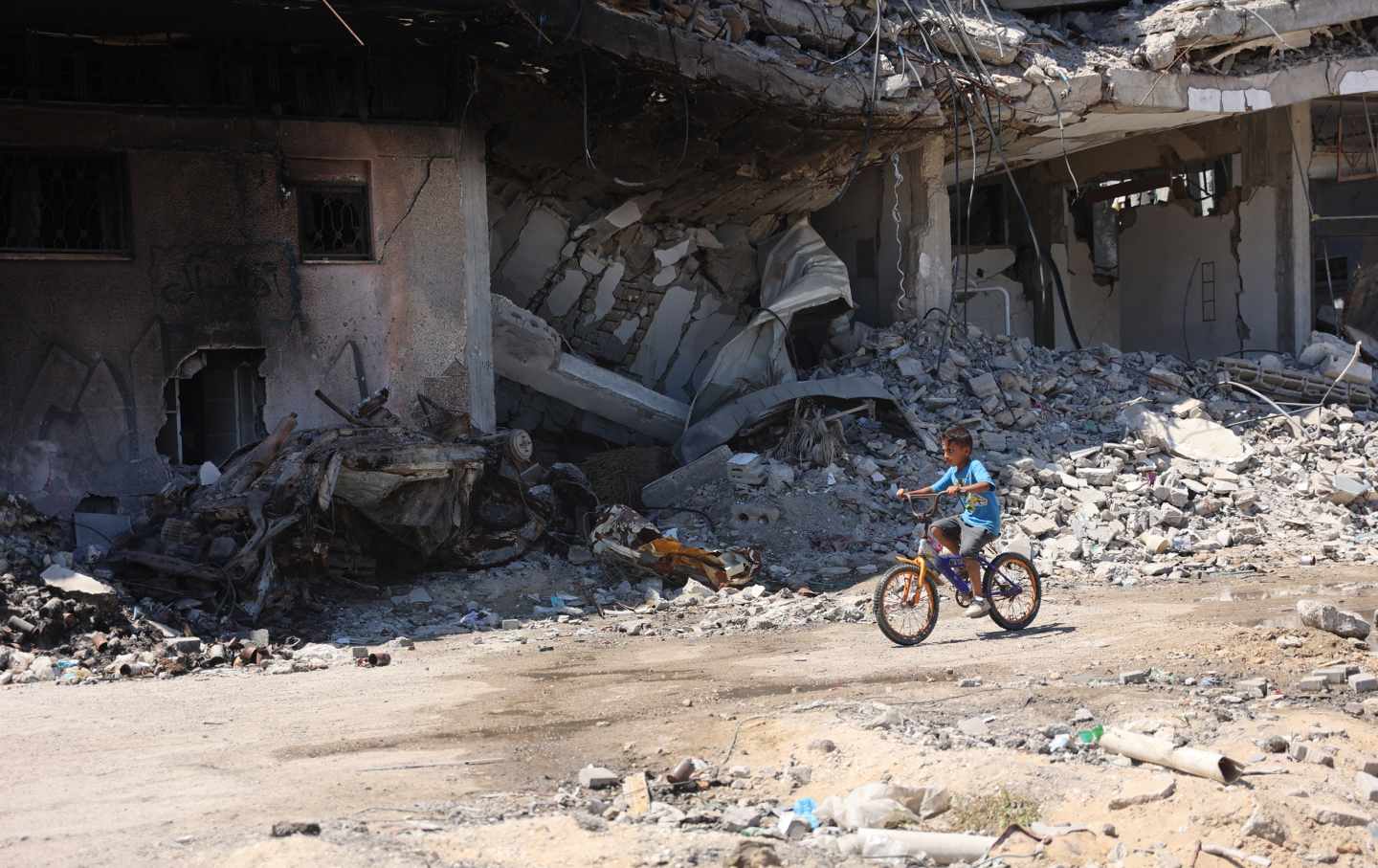
“Instead of playing and jumping, he is thinking of how to help us survive,” one father says.
A Palestinian boy cycles past buildings destroyed in previous Israeli bombardment, in the Sheikh Radwan neighborhood north of Gaza City on July 3, 2024.
(Omar Al-Qattaa / AFP via Getty Images)
Mohammed is 8 years old. He once dreamed of becoming an engineer like his father. However, the ongoing struggle that has ravaged Gaza since October 2023 has significantly altered the innocent mentality of Mohammed, his siblings, and countless other children.
Mohammed, his parents, and his three siblings fled their home in the Al-Jalaa neighborhood of Gaza City on October 13. They first sought refuge in Khan Younis, then in Rafah, before finally ending up in a tent in Al-Mawasi, an area extending from western Rafah to western Khan Younis, and one classified by Israel as a safe haven.
The constant threat of Israeli air strikes and the harrowing displacement have taken a significant toll on Mohammed and his family. But nothing has been quite as painful for his parents as seeing their kids lose their innocence and turn into old souls in young bodies.
Current Issue

Mohammed, once an active and smart boy who loved to play football and assist his grandfather with his commercial activities, has now been forced to mature far too young. The war has transformed him into a child who knows more about survival than playing games. “Mohammed has become an expert in lighting fires for cooking, filling water gallons, and planting and watering seeds before the tent,” his father said.
“Before leaving Rafah, Mohammed and I were walking through the city’s streets. As I stopped for a while to have a short conversation with my friend, I looked around to see Mohammed going a little bit farther away to collect wood from a destroyed house, even though I didn’t ask him to do so,” Abu Mohammed, his father, recounted. “I asked him why he was collecting wood, and he told me that we don’t need to buy wood.”
“That moment just broke my heart,” the father expressed. “Instead of playing and jumping, Mohammed is thinking of how to be economical and how to help us survive.”
Before this war started, Umm Mohammed’s first priority was her children’s education. She was dedicated to encouraging her kids, pushing them to study harder, and following up with their lessons to help them excel in their classes.
“I was overjoyed every time my children got full marks and never felt satisfied if they ever missed more than two marks,” she said. “I always wanted them to be superior above all.”
But the children have been away from school for about eight months. Umm Mohammed sometimes tries to push Lama, the oldest, and her siblings to write some sentences or do some mathematical calculations. “Lama often succeeds, yet Mohammed usually fails, and Rima could never make it,” she said.
Lama is 11 years old. She is a smart and quiet girl who loves to draw and make accessories. She also used to be the first in her class. Now, she spends her time either helping her mother cook food on a wood fire or washing clothes. “Lama looks like she grew up eight years, not eight months, in this war,” her mother said.
However, Lama remains a little bit luckier than her younger sister, Rima. She at least had the opportunity to pass four grades at school, while Rima did not. At this moment, Rima should have been celebrating her graduation from the first grade. She does not have enough skills in reading and writing, having managed to attend school for only a month before Israel launched its war on Gaza. Financial issues had also prevented her from attending kindergarten, yet her mother was keen on educating her. Umm Mohammed used to teach Rima letters and numbers at home, waiting for the first grade to start so Rima could sign up for school for free.
Since October 2023, approximately 300,000 students have been denied the right to complete their education as a result of the merciless war on the Gaza Strip. For over seven months, they have been experiencing diverse forms of death, displacement, fear, and starvation.
Umm Mohammed sometimes tries to push her children to recite the Qur’an, but even this usually seems difficult. Living in a tent basically feels like living in the open. “It is hard to keep the children focused, as the environment is chaotic and noisy all the time. Everyone around hears you, and you hear everyone in return,” she said.
Yet, amid the despair, hope still exists. “We hold onto the hope that one day, our children can return to their schools, to their books, and to their dreams,” said Abu Mohammed.
Popular
“swipe left below to view more authors”Swipe →
Thank you for reading The Nation
We hope you enjoyed the story you just read, just one of the many incisive, deeply-reported articles we publish daily. Now more than ever, we need fearless journalism that shifts the needle on important issues, uncovers malfeasance and corruption, and uplifts voices and perspectives that often go unheard in mainstream media.
Throughout this critical election year and a time of media austerity and renewed campus activism and rising labor organizing, independent journalism that gets to the heart of the matter is more critical than ever before. Donate right now and help us hold the powerful accountable, shine a light on issues that would otherwise be swept under the rug, and build a more just and equitable future.
For nearly 160 years, The Nation has stood for truth, justice, and moral clarity. As a reader-supported publication, we are not beholden to the whims of advertisers or a corporate owner. But it does take financial resources to report on stories that may take weeks or months to properly investigate, thoroughly edit and fact-check articles, and get our stories into the hands of readers.
Donate today and stand with us for a better future. Thank you for being a supporter of independent journalism.
More from The Nation
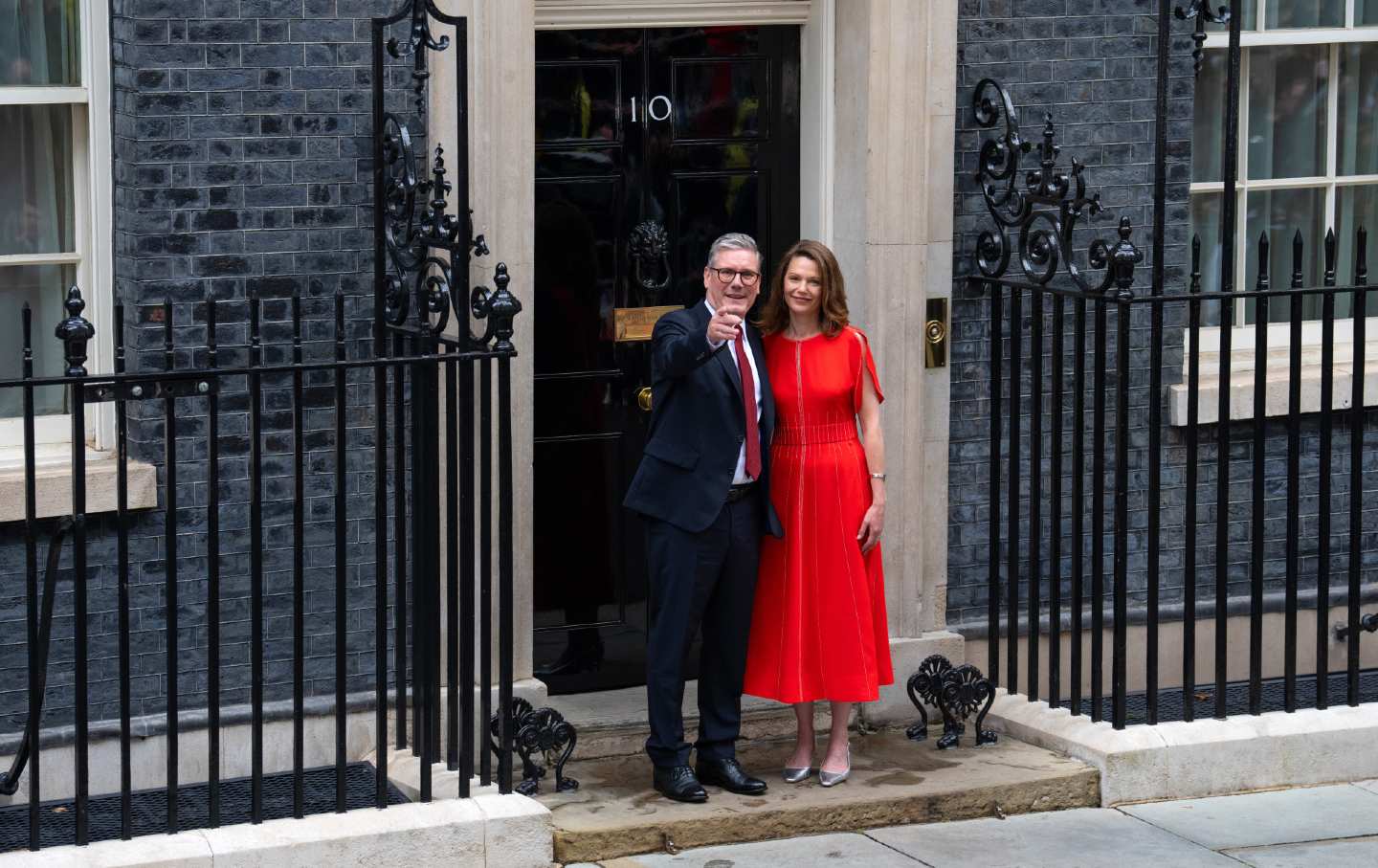
Keir Starmer has won a huge parliamentary majority—despite a fall in the Labour vote.
Steve Howell
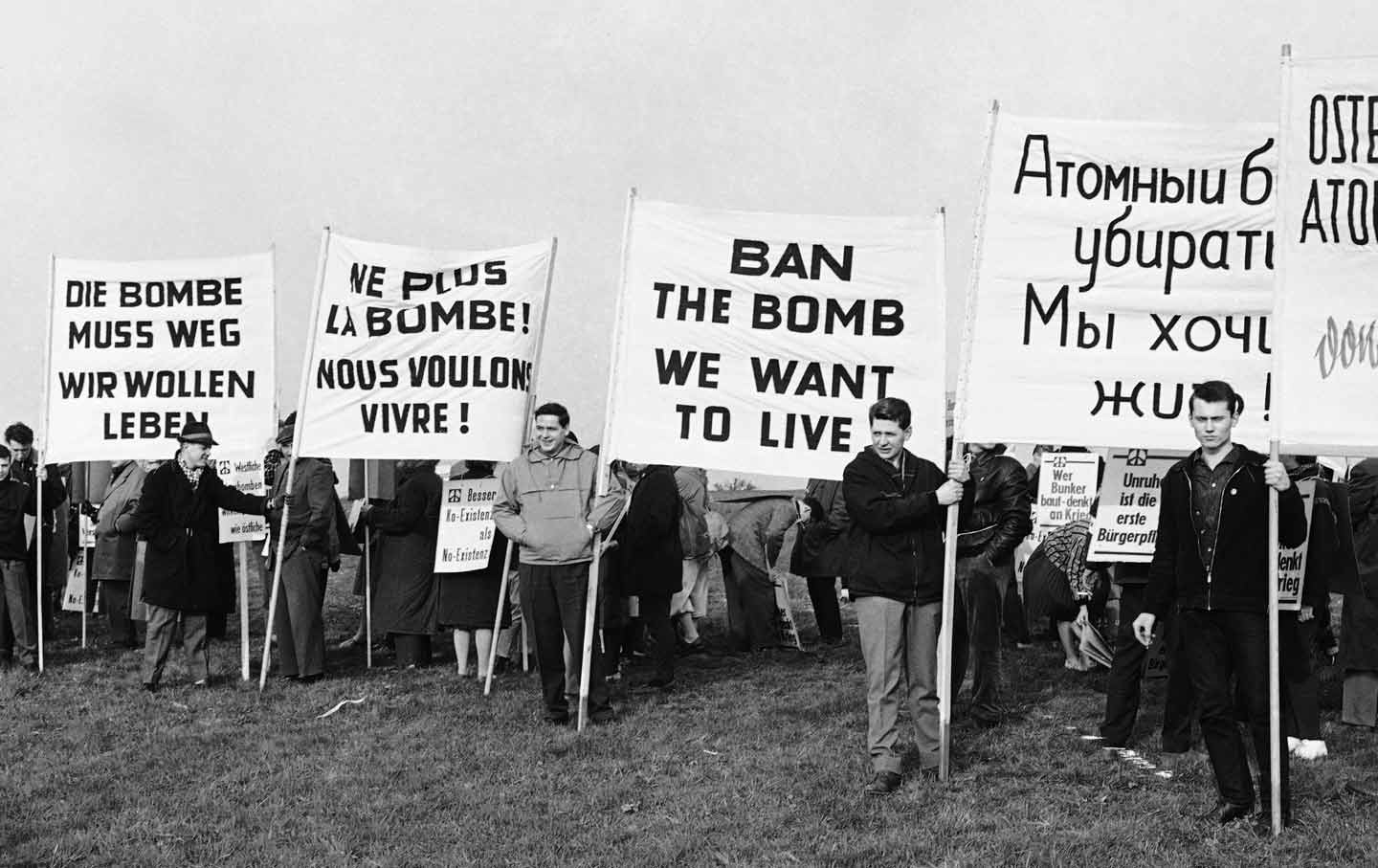
“If you don’t think nuclear weapons are a global issue, just ask the mayors of Hiroshima and Nagasaki.”
Quentin Hart
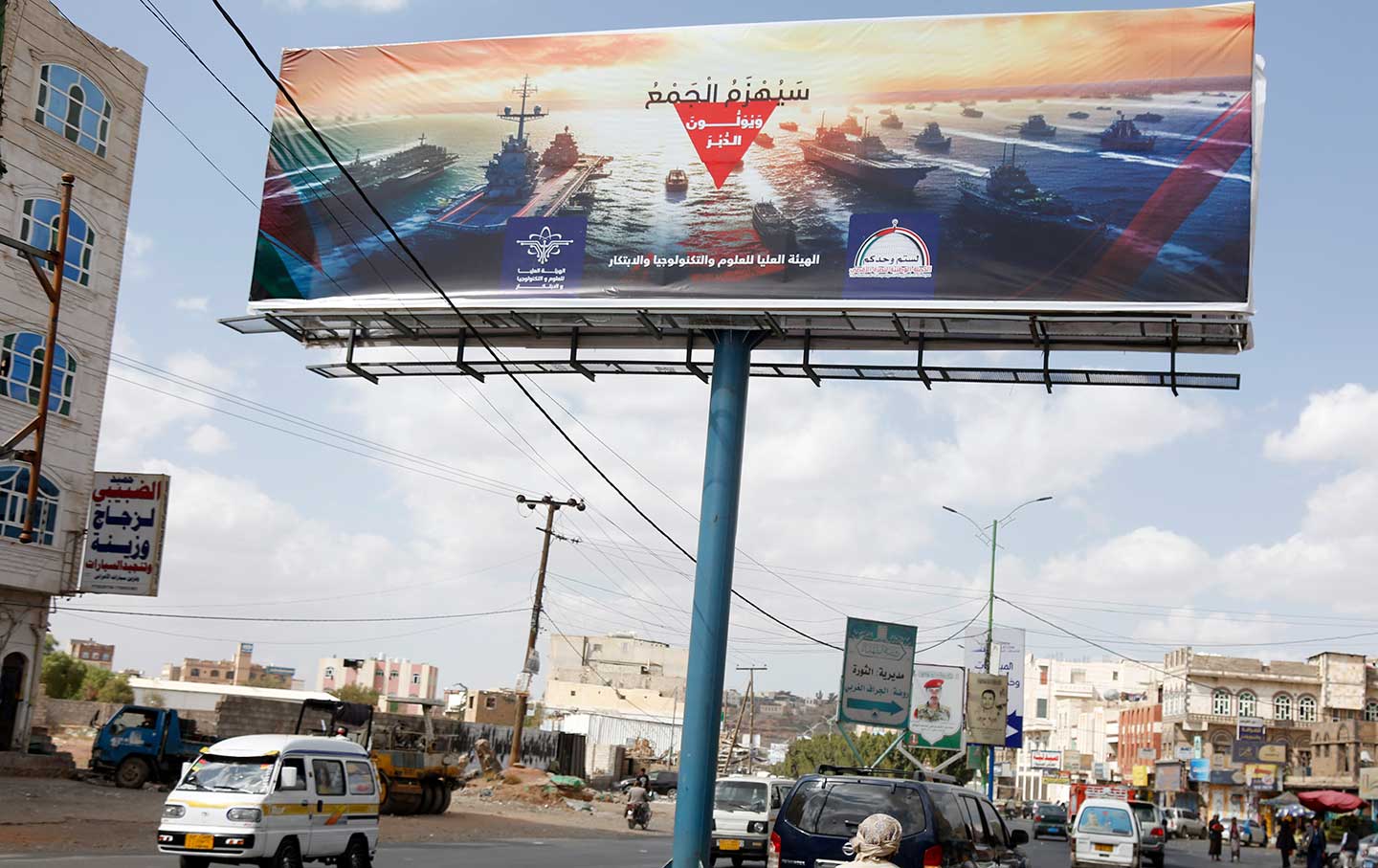
What we might call the Battle of the Tihamah has already lasted seven months and, surprisingly enough, given the opponents, its outcome remains in doubt.
Juan Cole

The feud between the Dutertes and the Marcoses could have dire consequences for the cold war between China and the United States.
Feature
/
Walden Bello
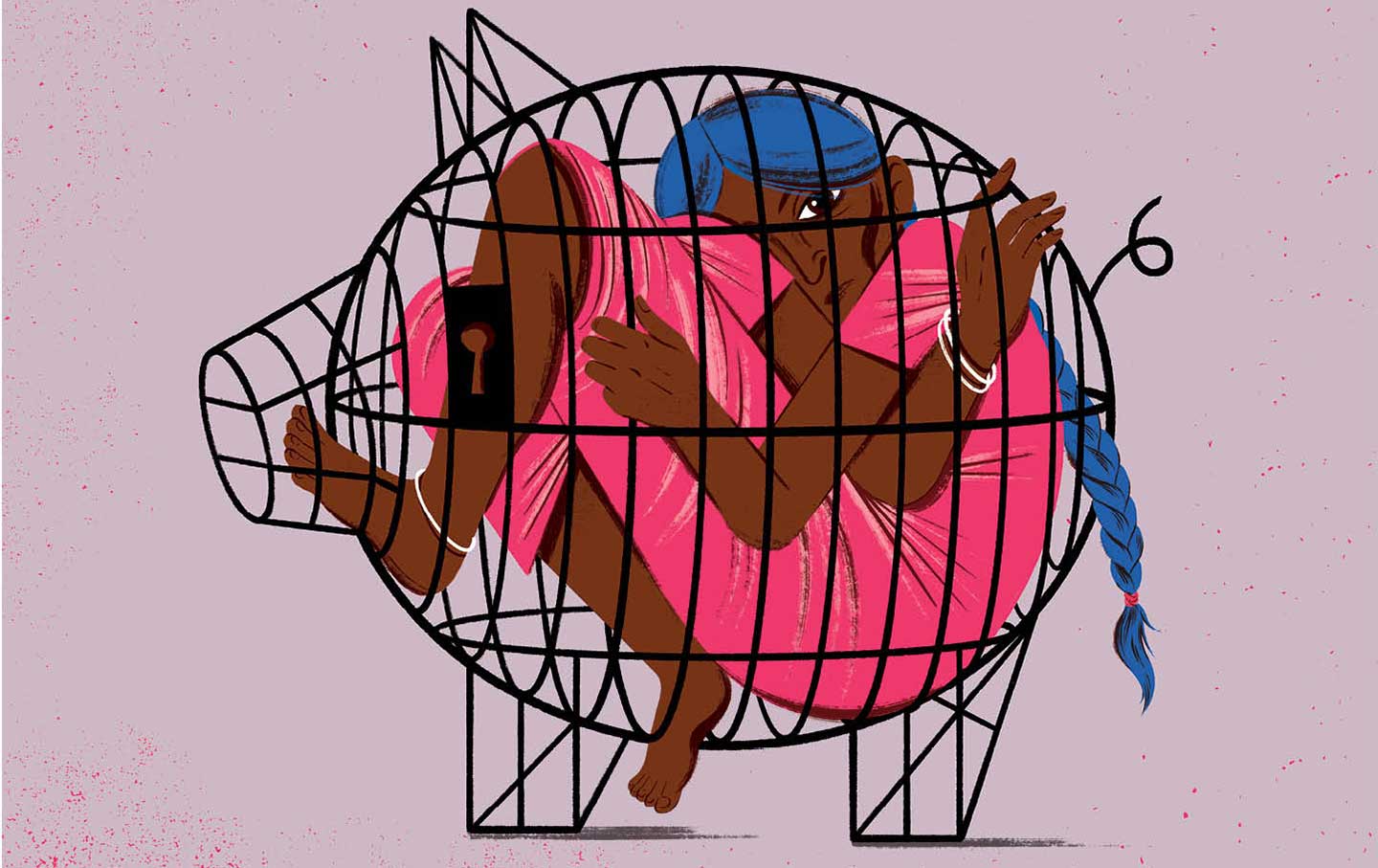
Microfinance has been touted as a miracle cure for poverty in the global south. The reality has been a lot messier.
Feature
/
Mara Kardas-Nelson